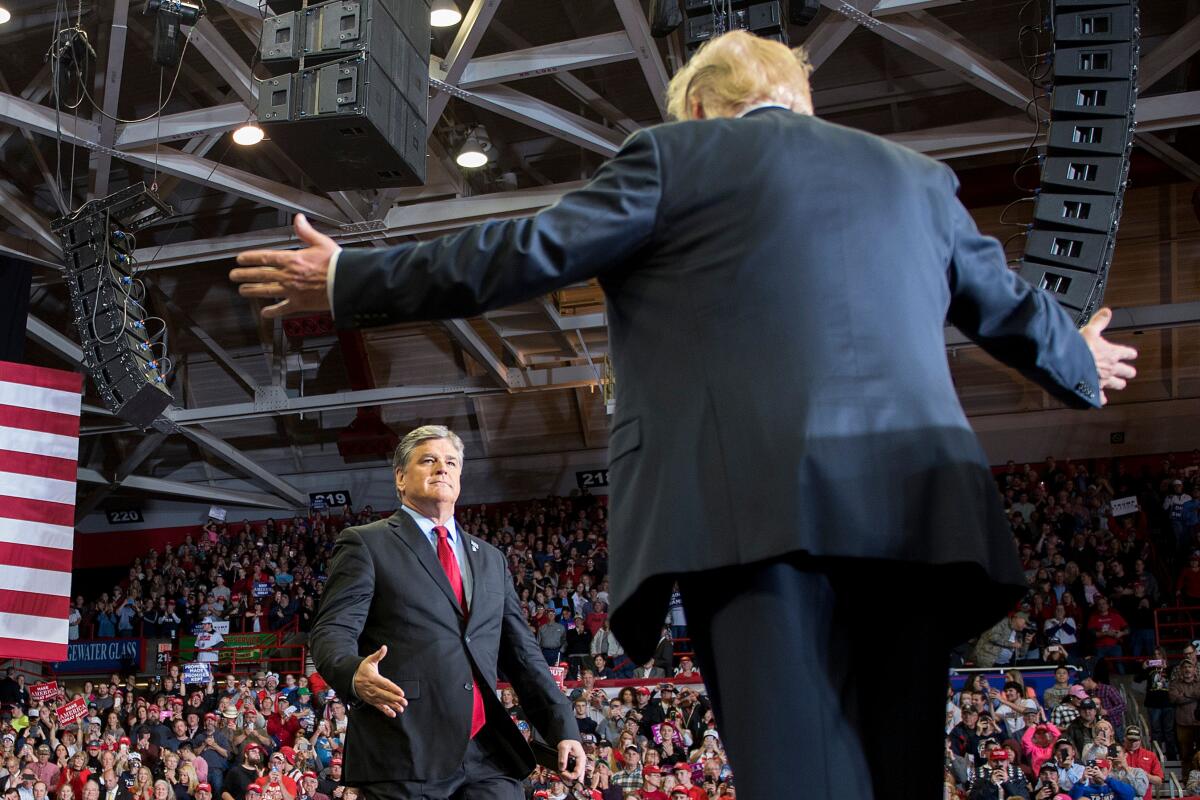Letters to the Editor: Why the 1st Amendment doesn’t shield Sean Hannity and Donald Trump’s exchanges

- Share via
To the editor: Does Fox News host Sean Hannity deserve 1st Amendment protection for his private discussions with former President Trump? Columnist Harry Litman cites the landmark freedom of the press case New York Times vs. Sullivan and comes to what I believe is the unwarranted conclusion that Sullivan should protect Hannity from having to disclose such private conversations.
Importantly, Sullivan does not protect discussions from being introduced as evidence; it protected journalists from being sued for inaccurate or defamatory articles unless the journalist knew of the inaccuracy or defamatory facts prior to publication and did so anyway.
Obviously, if someone confessed a crime to a journalist, that confession should not be barred from admissibility just because it was told to a journalist. Hannity’s discussions with former President Trump about the possibility of criminal intent for Jan. 6 should be disclosable.
The 1st Amendment should not be used as a shield to protect a criminal’s statements just because they are made to a journalist.
Ken Goldman, Beverly Hills
The writer is an attorney.
..
To the editor: The 1st Amendment protects reporters and their sources. By advising Trump, Hannity has made himself an actor in the drama, not a reporter. He wasn’t cozying up to Trump to get information. He was making the story, not reporting it.
New York Times vs. Sullivan protects public figures when their reputations are damaged by reckless false reporting on their conduct. It says nothing about what happens when the journalist chooses to be part of the story instead of sticking to reporting.
June Ailin Sewell, Marina del Rey




